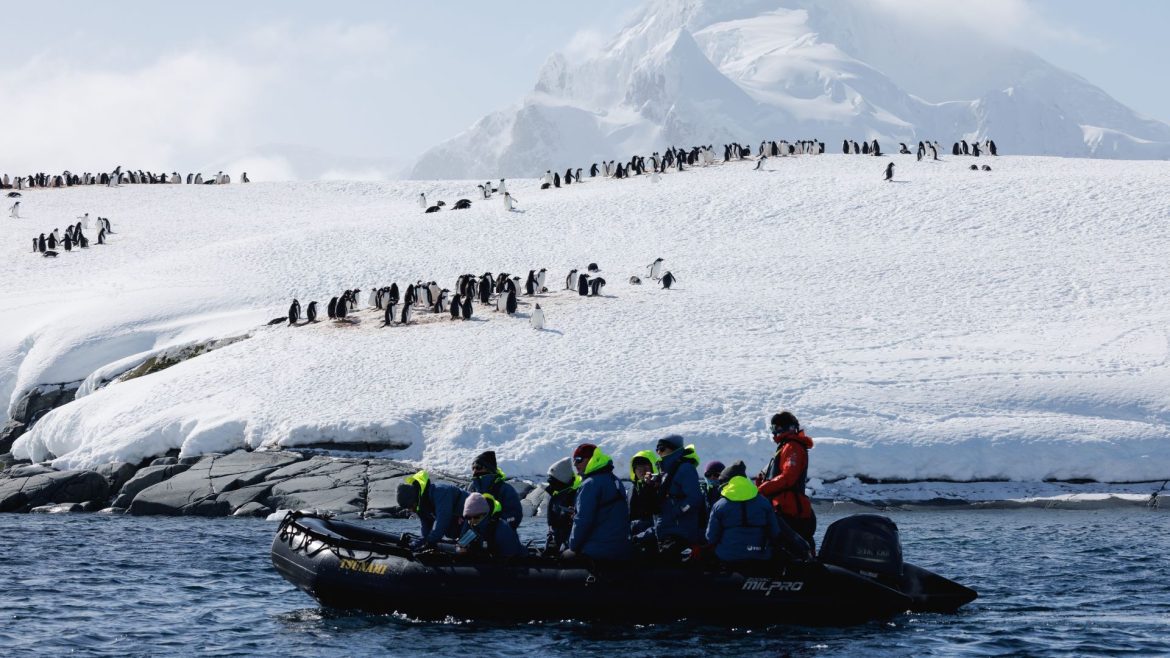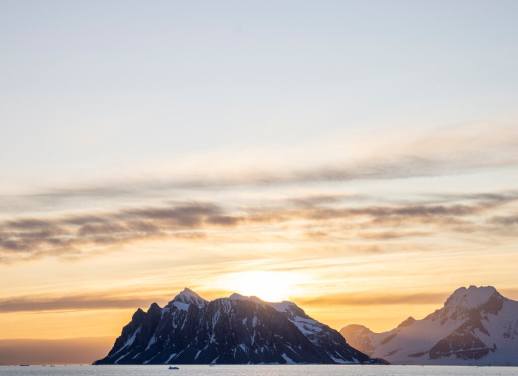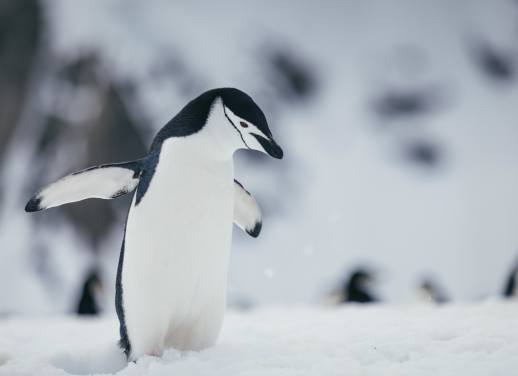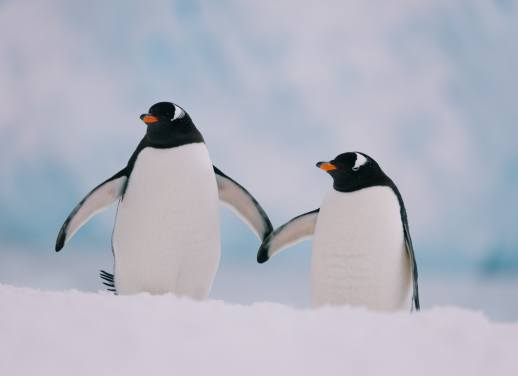Jenny Waack, Stephi Walker and Ida Olsson share what it’s like to lead expeditions to one of the most remote and adventurous places on earth.
No matter how prepared for the beauty of the Antarctic you might be, it will leave you speechless. Just check out some of the reviews on Intrepid’s Antarctica trips and you’ll see phrases like ‘trip of a lifetime’, ‘life changing’, ‘beyond words’, ‘breathtaking’ and ‘mind blowing’ appear over and over again. For most visitors, it really is a once-in-a-lifetime trip. But, what’s it like when you get to return more than once a year?
The team aboard the Ocean Endeavour can tell you. Jenny, Stephi and Ida were three of Intrepid’s four Antarctica expedition leaders this 2023-24 season, and each of them made at least four or five trips to the seventh continent this year.
Each of the Ocean Endeavour’s 12 trips to Antarctica this season had one expedition leader who’s responsible for the entire operation. The role of an expedition leader is a huge one, from planning and coordinating all landings and activities to managing 30 or so expedition team members – among them assistant expedition leaders, logistics managers, subject matter experts, activity guides and a doctor, to name a few. While all three aren’t on every trip, whenever they’re not acting as expedition leader you might find them on board in an assisting role.
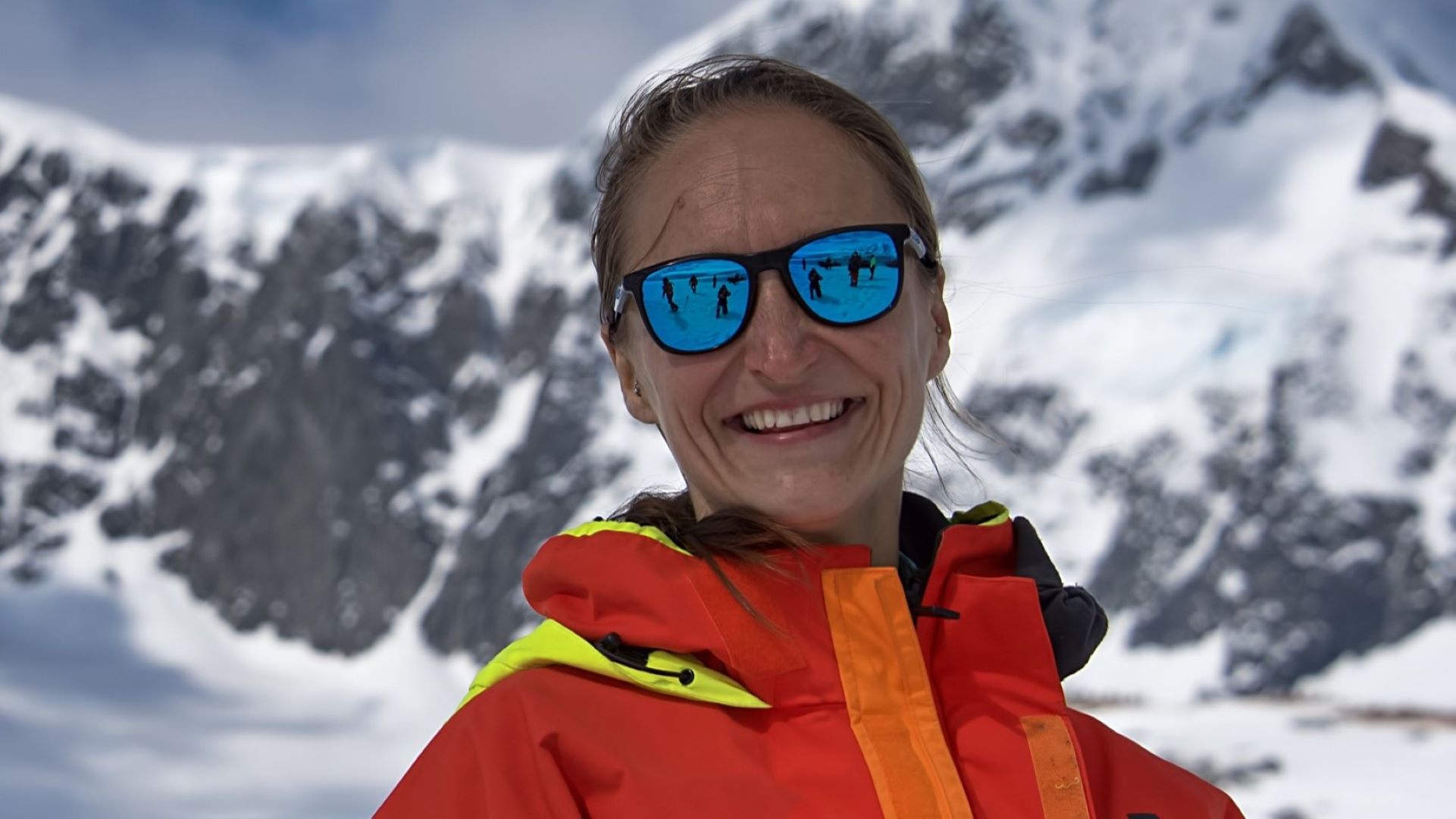
‘I knew I wanted to guide people to Antarctica after my first visit,’ says Jenny Waack, who started working there in 2017 and became an expedition leader for Intrepid this season. ‘It wasn’t just about finding a way to return to this stunning place, although that was certainly a part of it.’
The remoteness and long journeys aren’t for everyone, but they draw a diverse group of leaders.
‘The experience had a deep impact on how I see and feel about the environment and conservation. I believe guiding in Antarctica is an amazing way to continually experience this place through the eyes of the guests and to share my passion for its preservation and appreciation with others.’
The remoteness and long journeys aren’t for everyone, but they draw a diverse group of leaders. Jenny, originally from Germany, now calls Costa Rica her home base. The 39-year-old used to work in investment and retail banking. ‘The transition was challenging,’ she recalls. ‘I had to learn a whole new skill set and adapt to a very different way of life, but ultimately, it was worth it to pursue my passion for nature, adventure and conservation.’
When not in the Antarctic region, Jenny leads shark conservation diving trips and conducts whale shark research in the Galapagos. ‘These pristine environments are not only breathtaking to explore but also serve as vital ecosystems that must be preserved for the benefit of current and future generations,’ she says. And she’s just as active when she’s off duty, hiking, diving and skiing, with some yoga to balance it all.
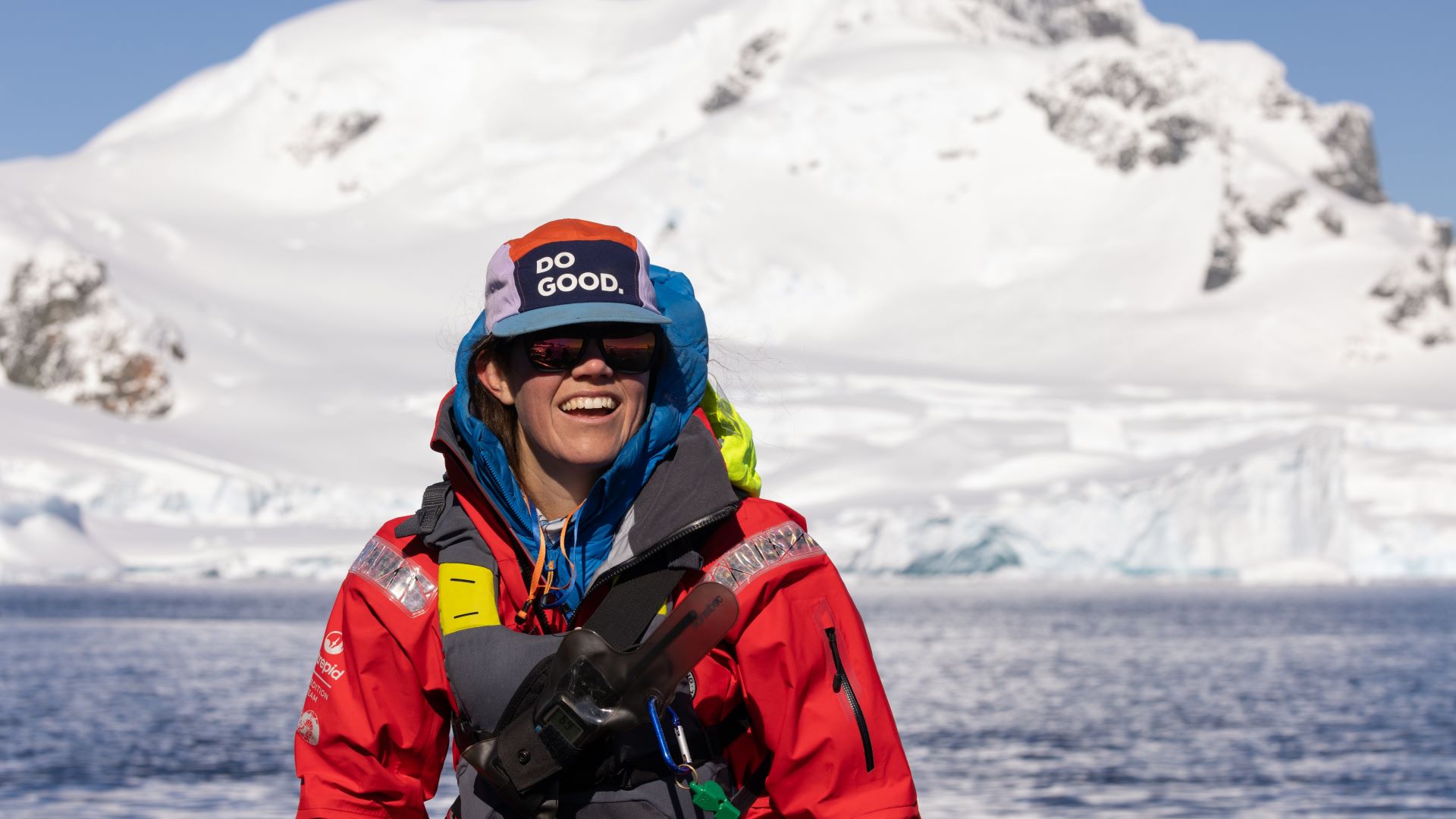
Stephi Walker, who’s 35, lives in Scotland and holds a degree in environmental geoscience. Given her interests, working in Antarctica may have always been in the cards. ‘As a kid, I used to look at maps of the world and fixate on [faraway]-sounding Tierra del Fuego at the end of the earth. It’s where I now spend a good amount of time as our trips start and end in Ushuaia in Tierra del Fuego. Perhaps it was fate!’ she says.
There is little terrain Stephi isn’t comfortable on. She is also a mountain leader, white-water canoe instructor, sea kayaker and commercial skipper and has led trips to remote areas of Canada, Ecuador and Borneo.
And Ida Olsson, 39, was originally a teacher at home in Sweden, a skill that she says helps her on expeditions. ‘It has helped me develop my skills to guide people the right way,’ she explains. ‘It has also helped me to create lectures to make it easier to learn and remember.’ Each day, travellers get to sit in on lectures on a huge range of subjects presented by the team’s leaders and experts.
When she’s not in the polar south, Ida is at the top of the world in Svalbard, a Norwegian archipelago in the Arctic Circle, where she takes adventure travellers on ski trips, snowmobiling and glacier hikes. ‘I absolutely love working in these extreme environments,’ she says.
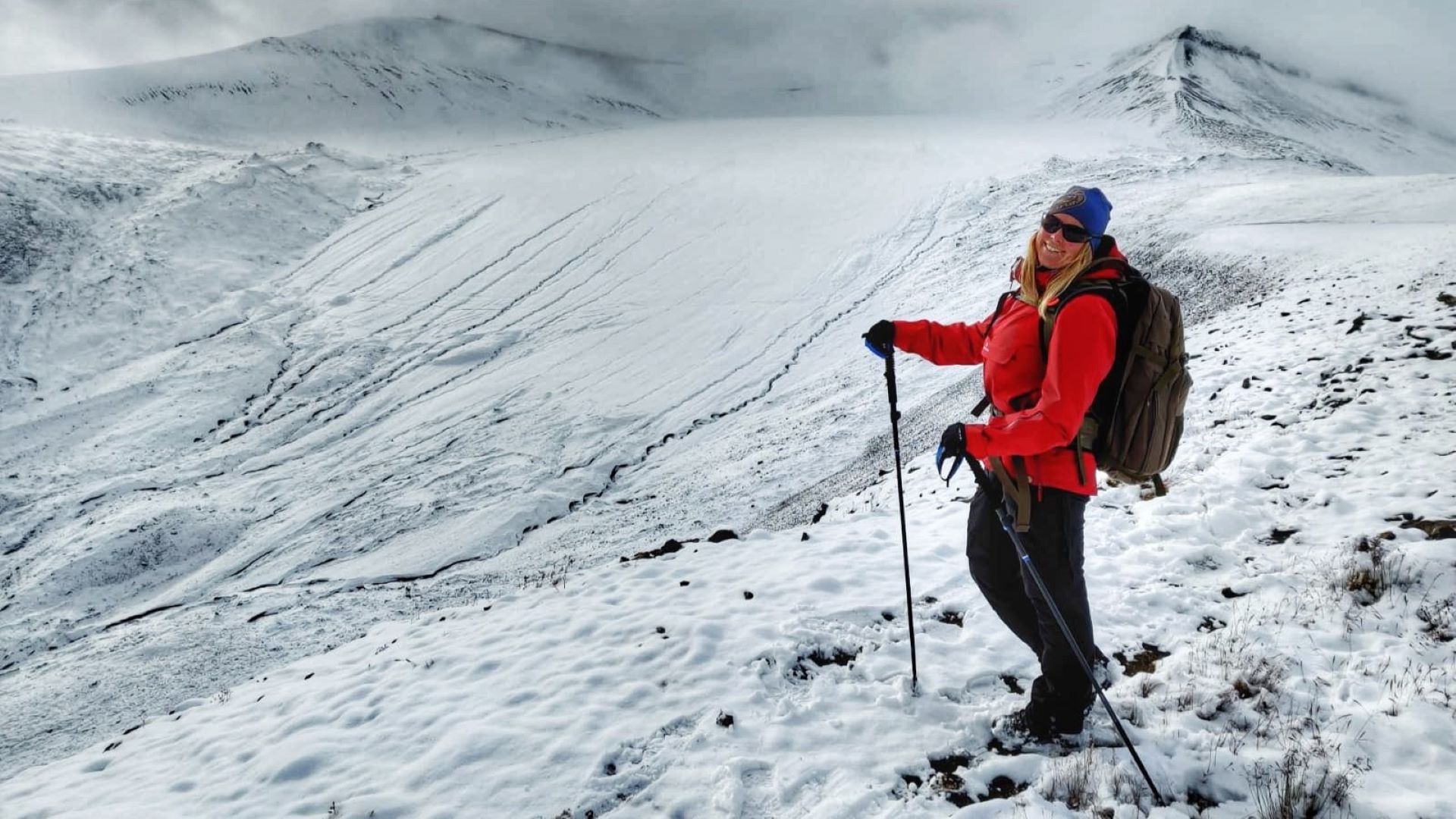
Historically, it’s not been typical to see so many women in the role of expedition leader in Antarctica.
‘Leadership and management styles in the expedition cruising industry have been a bit archaic but this is slowly beginning to change,’ says Stephi. ‘A focus on psychological safety and equality in the industry is long overdue. I also really appreciate all our wonderful male colleagues who are curious and open to learning about how we can all support each other in the workplace.’
Seeing women in these roles also leaves a mark on Intrepid travellers. ‘I had a really lovely moment earlier this season with an older guest who was asking me about what kind of experience and qualifications we look for in leaders,’ Stephi recalls. ‘His daughter, in her late 20s, had been on a trip with us the month before and had felt re-energised by seeing so many vibrant, competent women working together in such a remote environment.’
It’s the only continent on earth dedicated to peace and science, thanks to the Antarctic Treaty.
For each of them, access to Antarctica’s environment has strengthened their commitment to preservation and responsible tourism. ‘The landscape is breathtaking,’ Ida says. ‘After living in Svalbard, I was used to glaciers, but Antarctica was beyond anything I had ever seen.’
Stephi has found the environment grounds her. ‘I think the experience that Antarctica delivers can leave us feeling more connected to self, others and place, which, for me, really matters.’ She also mentions that it’s the only continent on earth dedicated to peace and science, thanks to the Antarctic Treaty. ‘It feels important not to leave this out,’ she adds.
Jenny feels her time in Antarctica has reinforced the importance of responsible tourism. ‘[It] has a way of captivating you like no other place on earth,’ she says.‘It’s crucial that we minimise our impact on this fragile ecosystem and respect the delicate balance of life here.’
Follow in their footsteps on a small group adventure to Antarctica.

